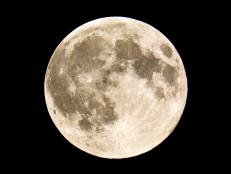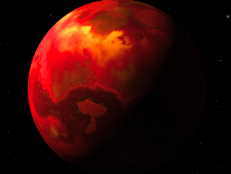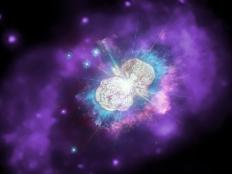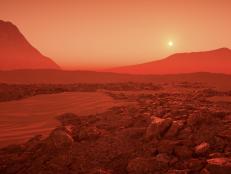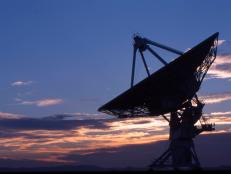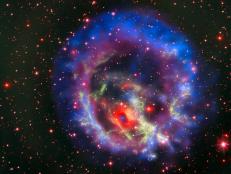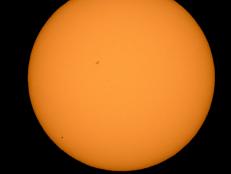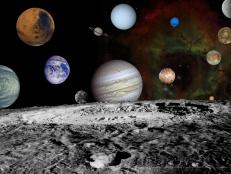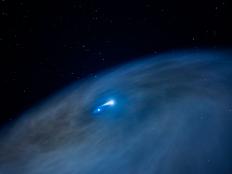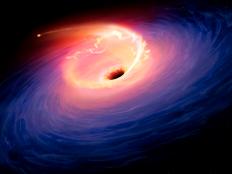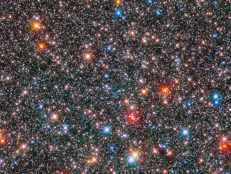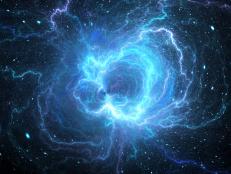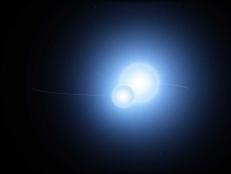All Space Articles
Showing 1 - 15 of 491 results
An Out-of-Control Rocket is about the Hit the Moon
Watch out, moon! On March 4 at precisely 7:25 am ET, a piece of rocket junk will slam into the moon.
Why NASA’s New Super-Telescope Can’t See Visible Light
Even though NASA’s latest flagship instrument, the James Webb Space Telescope, is touted as the successor to the venerable Hubble, it has one major difference.
Yet Another Exoplanet That You’ll Never Want to Visit
Ready for an exotic vacation? How about…really exotic? Tired of tropical beaches or snow-covered mountains? Let’s go…out of this world.
What Happens When Stars Kiss (Hint: They Explode)
You know that feeling--They close their eyes, purse their lips, and lean in. So you go for it. You feel the spark, the magic, and the fire of that first kiss. It’s one of the best things in the Universe.Except, of course, if you’re a star.
Will a Colony on Mars Ever Be Feasible?
We’ve all seen the movies. Tunnels cut through the red rock. Giant glass domes stretching from one end of a crater rim to another. Hydroponics. Lots and lots of hydroponics. But Mars is… a challenge.
Top 5 Reasons Why the “UFO Report” Isn’t Interesting to me, a Scientist
Excited by the prospects of the “UFO Report”? As a scientist, I have my doubts. But you can watch UFOS DECLASSIFED: LIVE on Discovery and Science June 30 at 8P where experts discuss what can and can't be explained.
How to Make a Neutron Star at Home
First, take a bunch of matter. It doesn’t matter what kind – a piece of paper, some leftover gum. Then, press it, and press it, and press it some more. Don’t stop now! We’ve got a long way to go.
Why Mercury Matters
At first, the planet Mercury isn't much to look at. It has a surface only a mother could love, as desolate and empty as the Moon and pock-marked with crater after crater. But this planet has a secret, which has folks wanting to know more.
It’s Not You, It’s Me: How a Planet Left Our Solar System
Sometimes you just know. Something clicks, you have a realization that this relationship isn’t right, and it’s simply time to go. It can happen to anyone, at any time, even to planets, and even billions of years ago.
What We’ve Already Learned From James Webb? (Hint: it’s a lot)
That was worth the wait. Just a quick handful of months since its historic launch on Christmas Day, the James Webb Space Telescope has flown to its observing position, unfolded its delicate instruments and ultra-sized mirror, and run through a suite of checks and alignments and calibrations. The team at NASA behind the telescopes released their first batch of images from the science runs, and besides being gorgeous, they're powerful.
Why Astronomers Care About Super-Old Galaxies?
A long time ago, our universe was dark.It was just 380,000 years after the big bang. Up until that age, our entire observable cosmos was less than a millionth of its present size. All the material in the universe was compressed into that tiny volume, forcing it to heat up and become a plasma. But as the universe expanded and cooled, eventually the plasma changed into a neutral gas as the first atoms formed.
The Case of the Missing Black Hole
You would think that objects weighing billions of times the mass of the sun would be easy to find. Alas, it’s rarely that simple.
Small Galaxies Matter Too
Long ago, our universe was without stars. When that first generation ignited, it completely transformed the cosmos, ripping away the veil of neutral gas that had persisted for hundreds of millions of years. This process, called reionization, is largely mysterious to astronomers. But new research is revealing that the smallest of galaxies may have played the biggest of roles.
Why We Know Nothing about Dark Matter and Dark Energy
Welcome to the era of precision cosmology…where we’ve managed to very precisely measure everything we don't know about the universe.
Like Stars? How About 6 in the Same Solar System?
Meet TYC 7037-89-1, a six-star solar system. Astrophysicist Paul M. Sutter explains this stellar surprise discovery.









